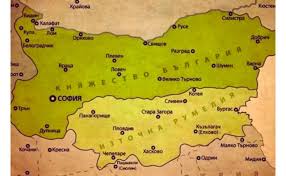Unification Day: How Bulgaria doubled its size while Europe slept

Sofia: Every September 6th, Bulgaria celebrates one of the most audacious political maneuvers in Balkan history – a bloodless coup that transformed the geopolitical landscape of southeastern Europe and sent shockwaves through the great powers of the 19th century. Unification Day commemorates the moment when a small nation dared to defy the Berlin Congress and redraw its own borders through sheer political cunning.
To understand the magnitude of Bulgaria’s unification, we must first grasp the absurdity of its division. After centuries under Ottoman rule, Bulgaria’s liberation in 1878 should have been a moment of pure triumph. Instead, it became a masterclass in European realpolitik gone wrong. The Treaty of San Stefano had initially created a large Bulgarian state, but the great powers – terrified of Russian influence in the Balkans – carved it up at the Berlin Congress like a thanksgiving turkey.
The result was a bizarre geographical puzzle: the Principality of Bulgaria in the north, nominally independent but paying tribute to the Ottoman Sultan, and Eastern Rumelia in the south, an autonomous Ottoman province with a Christian governor. Imagine if the United States had been split after independence, with the North allowed self-governance while the South remained under British administration – the frustration would be palpable.
Enter Alexander Battenberg, a German prince who found himself ruler of northern Bulgaria at just 22 years old. Unlike many foreign nobles imposed upon Balkan nations, Battenberg possessed something rare: genuine affection for his adopted country and its people. He learned Bulgarian, embraced Orthodox Christianity, and most crucially, understood that his legitimacy depended on fulfilling Bulgarian national aspirations.
But the real architects of unification worked in shadows and secret societies. Bulgarian revolutionaries, many veterans of the April Uprising of 1876, formed the Bulgarian Secret Central Revolutionary Committee. These weren’t amateur conspirators – they were seasoned professionals who had learned from decades of underground resistance against Ottoman rule.
By 1885, conditions were ripe for action. Eastern Rumelia’s governor, Aleko Bogoridi, was increasingly unpopular, and the province chafed under Ottoman oversight. Meanwhile, the great powers were distracted by crises elsewhere – Britain was concerned with Sudan, France with Indochina, and Russia with internal revolutionary stirrings.
The Bulgarian revolutionaries saw their window and struck with surgical precision. On the night of September 5-6, 1885, they executed what might be history’s most polite revolution. Revolutionaries quietly took control of key positions in Plovdiv, Eastern Rumelia’s capital, while citizens literally slept through the coup. When Governor Bogoridi awoke to find his authority dissolved, he reportedly asked, “What am I supposed to do now?”
Prince Alexander received word of the revolution via telegram – imagine getting a text message saying, “Congratulations, your country just doubled in size.” Initially hesitant, he quickly recognized that rejecting unification would mean political suicide. He rushed south to Plovdiv, where jubilant crowds proclaimed him ruler of a unified Bulgaria.
The international reaction was swift and predictable. The Ottoman Empire protested vehemently, demanding restoration of the status quo. Russia, despite being Bulgaria’s liberator, opposed unification because Alexander was acting independently rather than as a Russian puppet. Austria-Hungary feared Balkan instability, while Britain worried about Ottoman territorial integrity.
Serbia’s King Milan, calculating that Bulgarian expansion threatened Serbian interests, declared war in November 1885. This proved to be a spectacular miscalculation. Despite facing supposedly superior Serbian forces, Bulgarian troops – energized by defending their newly unified homeland – won decisive victories at Slivnitsa and other battles. The war ended with Serbian forces in retreat and Bulgarian confidence soaring.
Gradually, international recognition followed. The Ottoman Empire, recognizing reality, appointed Prince Alexander as Governor-General of Eastern Rumelia while maintaining the fiction of Ottoman sovereignty. Other powers eventually accepted the fait accompli, though tensions with Russia ultimately led to Alexander’s abdication in 1886.
Bulgaria’s unification represents something remarkable in European history – a small nation successfully challenging great power arrangements through careful planning, perfect timing, and national determination. The bloodless revolution proved that diplomacy backed by popular will could sometimes accomplish what decades of warfare could not.
Today, as Bulgarians celebrate Unification Day with parades and festivals, they honor more than a historical event. They celebrate the audacious spirit that transformed a divided nation into a unified state through one extraordinary September night when revolutionaries rewrote the map of Europe while the world slept.





